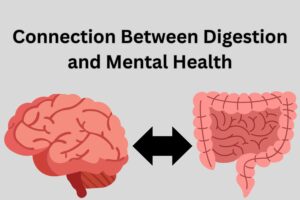The Psychological Effects of Racial Discrimination in the Workplace

It’s no secret that the US has a lot of problems addressing racism and there is still a long way to go. The Civil Rights era made a profound improvement on the issue of racism and gave people of color equal rights. However, there is still a lot of racism in the workplace.
Racial discrimination in the workplace is a major issue that affects the mental health of individuals who experience it. This type of discrimination is a direct violation of an individual’s dignity and rights, leading to negative consequences for their mental health and well-being. In this article, we will go over the psychological effects of racism when it’s experienced at work. When you are done reading, make sure to contact the law firm HKM Houston to get help.
Increased stress and anxiety
Racial discrimination in the workplace can lead to increased stress and anxiety, which can have long-lasting impacts on an individual’s mental health. The stress of facing discrimination regularly can be overwhelming, leading to feelings of anxiety and fear.
The fear of being discriminated against, either by colleagues or superiors, can cause individuals to feel as though they are constantly walking on eggshells and that their job security is in jeopardy. This can result in increased stress and anxiety levels, making it difficult for individuals to focus on their work and causing them to feel physically and emotionally exhausted.
The constant stress of racial discrimination can also result in physical symptoms, such as headaches, digestive problems, and fatigue. This can lead to decreased productivity and increased absenteeism, which can negatively impact the individual’s career as well as the workplace as a whole.
Impact on mental health
Racial discrimination in the workplace can lead to the development of serious mental health issues such as depression and post-traumatic stress disorder (PTSD). The trauma of facing discrimination on a regular basis can be overwhelming, leading to feelings of hopelessness and a sense of being trapped.
This can lead to symptoms such as anxiety, depression, and sleep disturbances, which can have a serious impact on an individual’s mental health and well-being. Depression is a common mental health issue that can develop as a result of racial discrimination in the workplace. Individuals who experience racial discrimination may feel a sense of hopelessness and worthlessness, leading to feelings of sadness, low energy, and a lack of motivation.
Lower quality of life
Racial discrimination can also lead to decreased self-esteem and confidence. When an person experiences discrimination, they may feel as though they are not valued or respected, leading to a decrease in their self-esteem and confidence. This can have a negative impact on their mental health, as well as their ability to perform at work.
It is important for individuals who experience racial discrimination in the workplace to seek support from friends, family, and mental health professionals to help them manage their stress and anxiety levels and protect their mental health. Otherwise, they risk having a low quality of life for years to come.






